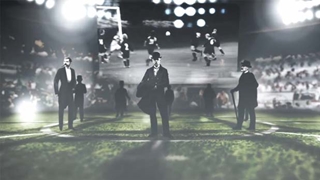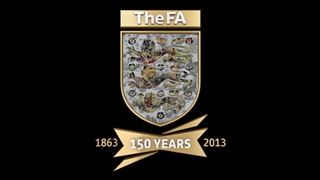
It was 152 years ago today that the eight Founding Fathers met in The Freemasons’ Tavern in Holborn, London to form The Football Association.
Monday 26 October 1863, in the heart of London, a city of oil lamps and hansom cabs, top hats and beards.
It was the year in which slavery was abolished in the United States, the International Red Cross was founded and a brand new underground train system that ran from Paddington Station to Farringdon Street rumbled into life.
Ebenezer Cobb Morley, a solicitor and sportsman living in Barnes in south-west London, thought that football should have a set of rules in the same way that the MCC had them for cricket.
So, the captains, secretaries and other representatives of a dozen London and suburban clubs met at the Freemason’s Tavern in Great Queen Street, near to where Holborn tube station is today.
Their purpose was to form an Association with the object of establishing a code of rules for the regulation of football.
The clubs represented at the first meeting were: Barnes, War Office, Crusaders, Forest (Leytonstone), No Names (Kilburn), Crystal Palace, Blackheath, Kensington School, Percival House (Blackheath), Surbiton, Blackheath Proprietary School and Charterhouse.
The FA’s intention was to standardise the rules: to iron out differences, not to create a new game. Morley became The FA’s first secretary, later its president, and he drafted modern football’s first rules at his Thames-side home at 26 The Terrace in Barnes.
The FA's history in 150 seconds
This is the man who set football on its long track around the world. It took six meetings for The FA to finally approve those rules.
Along with Morley, those Founding Fathers of football were Arthur Pember, Charles William Alcock, Francis Maule Campbell, John Forster Alcock, Herbert Thomas Steward, George Twizell Wawn and James Turner.
Before The FA was formed, football was in a hybrid state. Today it spans a world that is caught up in its magic.
To those men of a clear vision and high resolve who first gathered together at the Tavern, The FA, and all football fans, owe a great debt.







